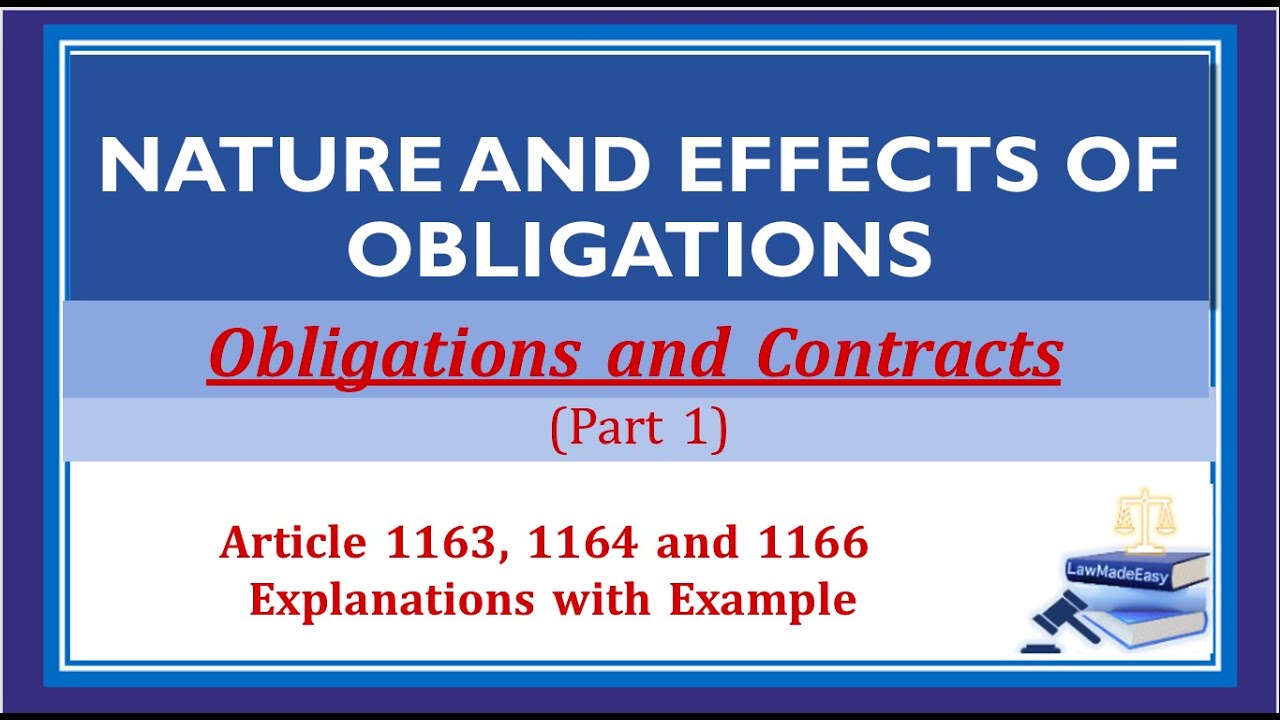FAMILY CODE OF THE PHILIPPINES (TITLE 10: EMANCIPATION AND AGE OF MAJORITY)
Summary
TLDRThis video script delves into the topic of emancipation and the age of majority under Title 10 of the Family Code of the Philippines. It explains that emancipation occurs at 21 or through marriage and a civil register agreement for minors 18 and older. The script also covers the legal implications for orphans and the responsibilities minors face upon reaching 18. It clarifies that parental authority ends with emancipation, except in specific cases, and discusses the effects of marriage nullity on parental authority.
Takeaways
- 📜 Emancipation in the context of the Family Code of the Philippines is the release from parental care and responsibility, typically occurring at the age of 21 unless otherwise provided.
- 💍 Emancipation can also occur through marriage of the minor, which signifies the end of parental control as they are now capable of making their own decisions and forming a family.
- 📝 Emancipation may be declared irrevocably through a public instrument executed by the parent and the minor who is at least 18 years old, which is recorded in the civil register.
- 🔑 One of the advantages of emancipation is the freedom and independence it grants to minors, allowing them to explore the world, make decisions, and handle their own problems.
- 🏡 Article 235 specifies that the provisions for emancipation by recorded agreement apply to orphan minors as well, but the agreement must be court-approved.
- 👫 Emancipation opens up the right for minors, whether old or adopted, to marry and form their own families with the permission of their parents and legal authorities.
- 📚 Article 236 states that emancipation terminates parental authority over the child's person and property, making the child responsible for all acts of civil life.
- 👶 The parental authority in the Philippines remains with the parents until the child reaches 18, even if they are capable of working and being independent.
- 👨👩👧👦 Parental authority typically lies with the father or both parents if the child is legitimate, and with the mother if the child is illegitimate.
- 🚼 For minors between the ages of 18 and 21, parental consent or permission is still required for marriage, although the marriage is valid without it, there is a chance for parental objection.
- 🔄 The declaration of nullity of a minor's marriage or a recorded agreement can revive parental authority, but it does not affect acts and transactions that occurred before the final judgment was recorded.
Q & A
What is emancipation according to the Family Code of the Philippines?
-Emancipation is a release from parental care and responsibility. Minors are under the control of their parents or legal guardians until they attain the age of majority.
At what age does majority commence according to Article 234?
-Majority commences at the age of 21 years.
What are the ways through which emancipation can occur?
-Emancipation can occur by the attainment of majority, marriage of the minor, or by the recording in the civil register of an agreement executed by the parent exercising parental authority and the minor who is at least 18 years of age.
What is the significance of an irrevocable emancipation agreement?
-An irrevocable emancipation agreement means that the agreement cannot be changed, reversed, or recovered. It is a legal process that ensures the rights of the parents and the minor are properly addressed.
What are some advantages of emancipation for minors?
-Advantages include allowing the minor to be independent, explore the real world, face life, make decisions, handle problems, and survive without parental care.
How does Article 235 relate to emancipation?
-Article 235 states that the provisions governing emancipation by recorded agreement also apply to an orphan minor and the person exercising parental authority, but the agreement must be approved by the court before it is recorded.
What happens when a minor is emancipated according to Article 236?
-Emancipation for any cause terminates parental authority over the person and property of the child, who then becomes qualified and responsible for all acts of civil life.
What is the legal age for marriage in the Philippines as per the script?
-The legal age for marriage is 18 years old, but parental consent is still required for those between 18 and 21.
What happens if a marriage of a minor is declared null and void?
-According to Article 237, the announcement or declaration of nullity of the marriage of a minor or of the recorded agreement will revive the parental authority over the minor but will not affect acts and transactions that took place prior to the recording of the final judgment.
Is it necessary to have parental consent for marriage if the individual is between 18 and 21 years old?
-Yes, parental consent or permission is needed for marriage if the individual is between 18 and 21 years old.
What happens if a marriage is conducted without parental consent or permission?
-The marriage is still valid, but there is a chance for the parents to contest it within a certain time frame. However, if the individual is 22 or older, they can marry without parental consent.
Outlines

此内容仅限付费用户访问。 请升级后访问。
立即升级Mindmap

此内容仅限付费用户访问。 请升级后访问。
立即升级Keywords

此内容仅限付费用户访问。 请升级后访问。
立即升级Highlights

此内容仅限付费用户访问。 请升级后访问。
立即升级Transcripts

此内容仅限付费用户访问。 请升级后访问。
立即升级浏览更多相关视频

Hukum Perdata #03 | Pengertian Subjek Hukum dan Kecakapan Bertindak

Edukasi Hukum | Pendewasaan sebelum usia dewasa oleh Dr. Taufikkurrahman

Part 1. Nature and Effects of Obligations. Obligations and Contracts.

The History of The Philippines. "MAHARLIKA" The lost Kingdom (English version)

Science, Technology, and Society 7 - Filipino Presidents and Science & Technology - Part 2

Jetsanity's History Lectures: Analysis of the Noli
5.0 / 5 (0 votes)
